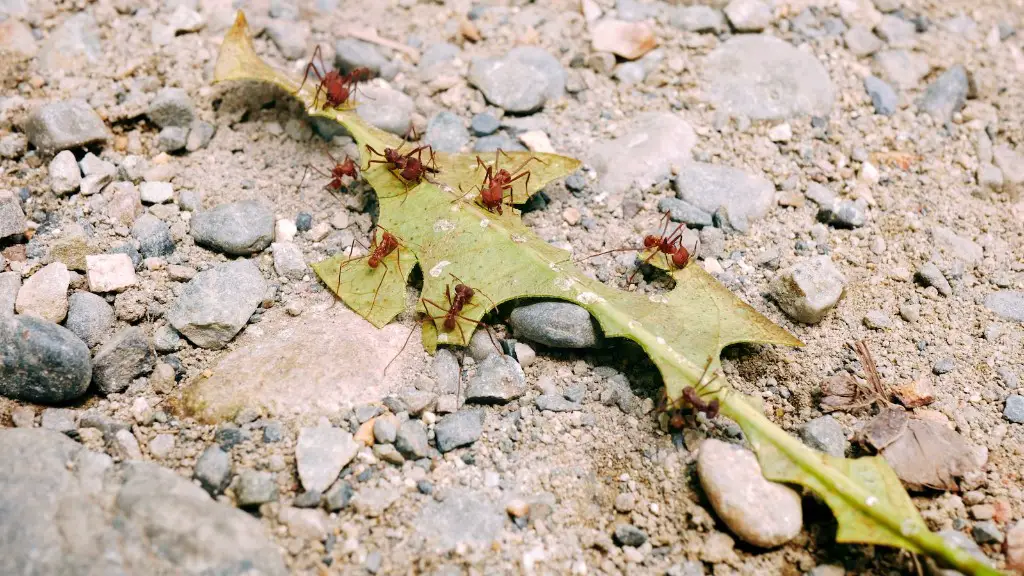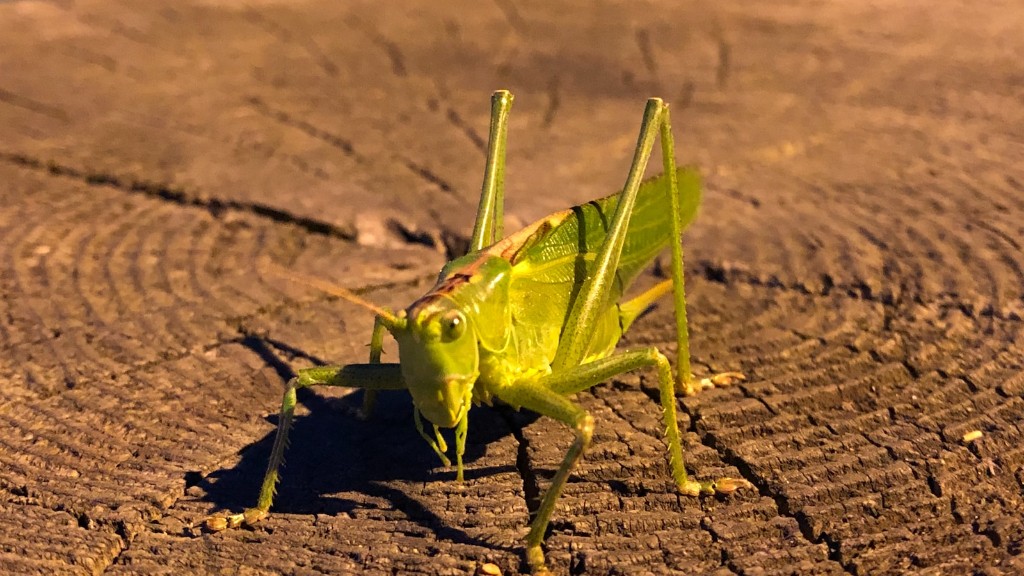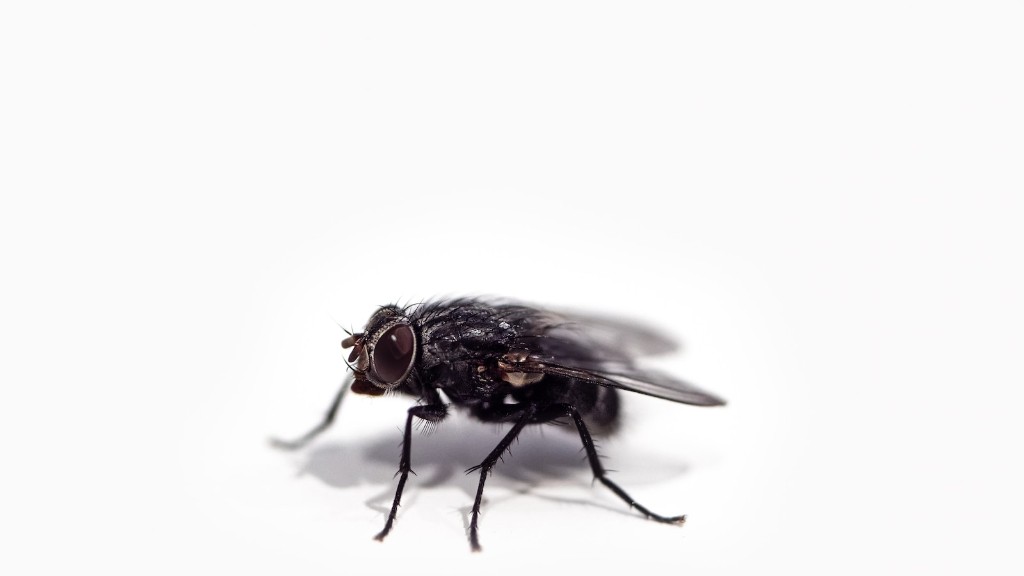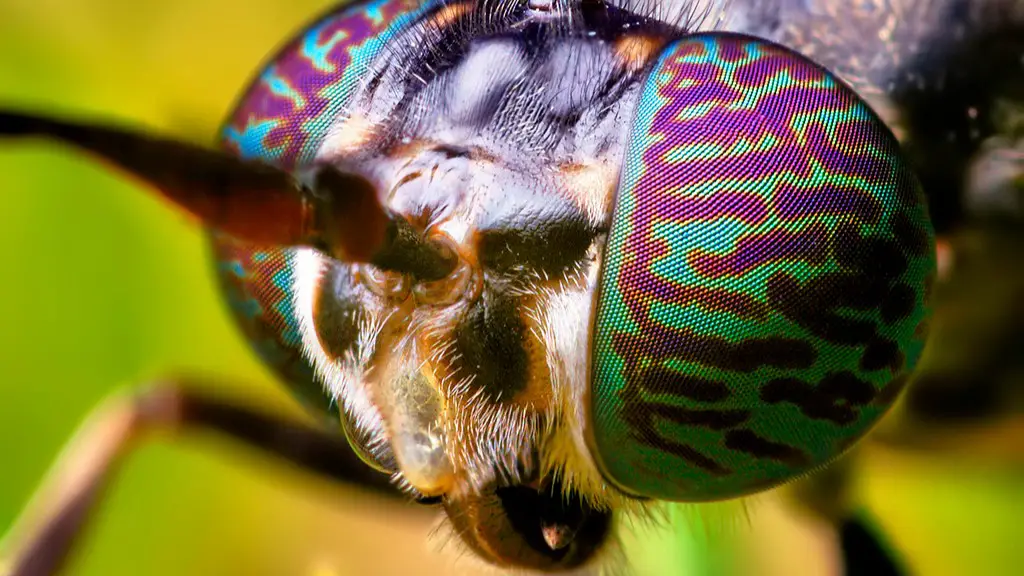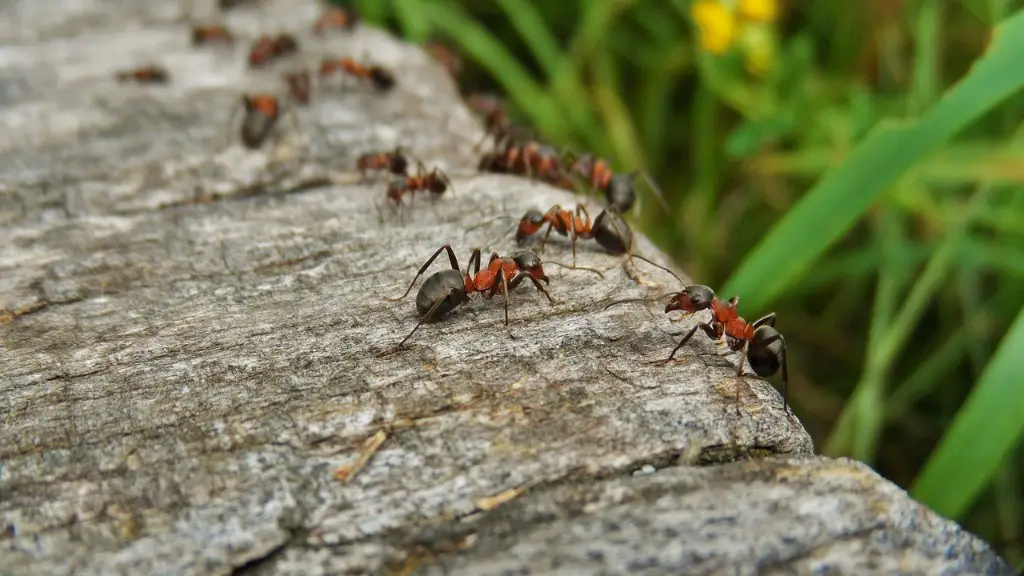Kitchen Sanitation
Ants in the kitchen can be quite unpleasant and difficult to get rid of. In most cases, ants enter the kitchen looking for food sources or nesting sites. The best way to get rid of them is by thoroughly cleaning the kitchen and removing any sources of food or water that can attract them. Here are a few steps to get rid of ants in the kitchen.
Firstly, store food in airtight containers and keep it off the floor. Use sealing containers for dry and canned goods, pet food, and other food sources. Clean up spilled food crumbs and any other potential food sources as soon as possible. Regularly vacuum and sweep the floors in order to pick up any hidden crumbs or bits of food. Clear all trash and leftover food from counters. Ants are attracted to food sources, so storing food properly and regularly cleaning will go a long way towards eliminating ants.
Secondly, keep all non-food areas of your kitchen clean. Wipe down countertops with a mild cleaner and keep dishes off the counters in a dish rack. Clean all appliances, including the stove and the refrigerator. Make sure that all cracks and crevices in your kitchen are sealed with caulking so that ants cannot crawl in. Ants are often attracted to places that are warm and damp, so pay special attention to the kitchen sink, which is usually the warmest and the most humid area of the kitchen.
Thirdly, try natural solutions to fight against ants. Sprinkle cinnamon or black pepper in areas where you see ants or around any entry points. Ants will be deterred by the strong scent and will leave your kitchen. Sprinkling cocoa powder works as well. You can also mix equal parts of white vinegar and water in a spray bottle and spray it around any areas that ants may be entering. Ants are repelled by the strong smells.
Finally, use store-bought pesticides or insecticides if the other methods are not effective. Make sure to use only products that are labeled for use in kitchens and follow the instructions for safety. Before using any products, it is important to read the label to make sure that the product is suitable for use in your kitchen.
Window and Door Sealing
For an additional layer of protection, homeowners should check windows and doors for any gaps or cracks where ants may be entering. Use a silicone caulk to seal any cracks or gaps along the window sills and doorframes. This will leave no room for any potential ants to get into your home. Installing a door sweep along the entry door is also a great way to keep ants outside.
Screening windows and vents is also a great prevention measure. Check all window screens and make sure they fit tightly and have no holes or tears. This will prevent any flying or crawling pests and is especially important for keeping ants out of the kitchen.
Installing weather stripping around exterior doors is a great way to keep the kitchen ant-free. Choose the right type of weather stripping for the exterior doors and make sure to follow the manufacturer’s instructions for installation. Weatherstripping prevents drafts, leakage, and air infiltration, preventing ants from getting into the kitchen.
Keeping exterior walls of the house in good condition is also important. Caulk all cracks, holes, and crevices in the exterior walls so ants won’t be able to enter the house. Sealing all holes, particularly around the base of the walls, will help keep ants out of the kitchen.
Finally, trim away trees and bushes that are close to the house. This will reduce any potential ants from nesting around the home. Reducing potential nesting sites will further reduce any chances of ants entering your home.
Outdoor Pest Control
Another way to prevent ants from entering the kitchen is to eradicate ants in the yard. This can be done by regularly tending to the garden and making sure there are no decaying or rotten food sources left in the yard. If there are any ant hills, use natural ant killer or ant bait to exterminate them. Be sure to regularly check areas of the yard that are shaded or damp, as these are the areas where ants are typically found.
Also check if there are any hollowed logs or branches that may be harboring ants. Remove any dead trees and brush from the yard. Trim lawns and shrubs regularly and keep them away from the exterior walls of the home. Doing these things will create a barrier and keep ants away from the perimeter of the house.
It’s also important to inspect the roof and eaves for any nests or signs of ants. Remove any nests that are found, as these are potential entry points for ants. Finally, infestations of ants can be avoided by using pet waste bags when walking the dog and by picking up pet food and water bowls when not in use.
Indoor Products
If you have already spotted ants in your kitchen, there are a few products that can be used to eradicate them. The first step is to identify the type of ant that is entering the kitchen. Sprinkle an ant identification powder on areas where you have seen ants and inspect them with a magnifying glass. This will help you determine which species of ant is entering your home.
Once you know the type of ant, you can select a pest control product that is effective against that species. There are a variety of products available for both indoor and outdoor use. For example, bait stations are quite effective for indoor use, as they lure the ants in and trap them. Gel baits also work well for indoors. Outdoor ant sprays and granular insecticides are effective for outdoor use.
You may also choose to use natural ant control products, such as boric acid or diatomaceous earth. Boric acid is an effective ant killer, but it is also toxic to humans and pets, so use it with caution. Diatomaceous earth is a safer option, as it is non-toxic to humans and pets but very effective in killing ants.
Preventive Measures
The best way to keep ants out of the kitchen is by taking preventive measures. Keep the kitchen clean, store food properly, and seal off entry points. Keep potential food sources away from the house, inspect the walls and roof for any nests or signs of ants, and use weatherstripping to seal windows and doors. Regularly inspect the yard for any ant colonies and keep it in good condition. Finally, use natural products or store-bought pesticides to eradicate ants.
Exclusion
The best way to prevent ants from entering the kitchen is by exclusion. This involves cutting off any potential entry points and sealing them with caulking or weatherstripping. Make sure to inspect windows, doors, and the roof for any gaps or cracks that could potentially be used as an entry point. Pay special attention to areas where plumbing pipes and gas lines enter the walls. Install door sweeps to ensure a tight seal along the entry door.
If you notice any holes or gaps in the walls, use plastic mesh or steel wool, which ants cannot penetrate. This will serve as a physical barrier and keep ants from entering the kitchen. Check for any damp or warm areas of the kitchen and seal them, as these are usually the areas where ants are attracted to.
Also, make sure all windows and doors close tightly, so there are no gaps for ants to enter. Caulk all cracks and crevices, as this will help keep ants from entering the home. Finally, inspect the perimeter of the house for any potential sources of food, such as pet food bowls or fruit trees, and keep them away from your home so ants are not attracted.
Baiting and Insecticides
Lastly, baiting and insecticides can help to get rid of ants in the kitchen. Baiting involves placing ant baits or traps in areas around the house where ants are entering. The bait will be picked up by ants and carried back to their nest, killing them in the process. Insecticides can also be used to control ants. Make sure to use products that are labeled for use in kitchens and follow the instructions for safety.
Keeping the kitchen clean, preventing entry points, and using baiting or insecticides can help to get rid of ants in the kitchen. It is also important to regularly inspect for ants and take measures to eradicate them. Doing this will help to keep your kitchen ant-free and safe from potential pest infestations.

